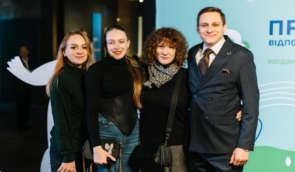A pre-premiere screening of the film People of Freedom’s Color took place in Kyiv: ZMINA joined the discussion about resistance in the occupation
On 30 June 2025, the National Museum of the History of Ukraine in the Second World War hosted a pre-premiere screening of the documentary film People of Freedom’s Color. The film was created by the NGO Locals (Tuteshni) with the support of the Special Operations Forces of the Armed Forces of Ukraine and with the assistance of the International Renaissance Foundation. The film features stories of resistance in Crimea, Donetsk, Luhansk, Kherson, Melitopol, Novoazovsk and other cities. Among the key figures are members of the Yellow Ribbon and Zla Mavka movements, as well as those who remained in the occupied territories but continue to fight for their Ukrainian identity on a daily basis.
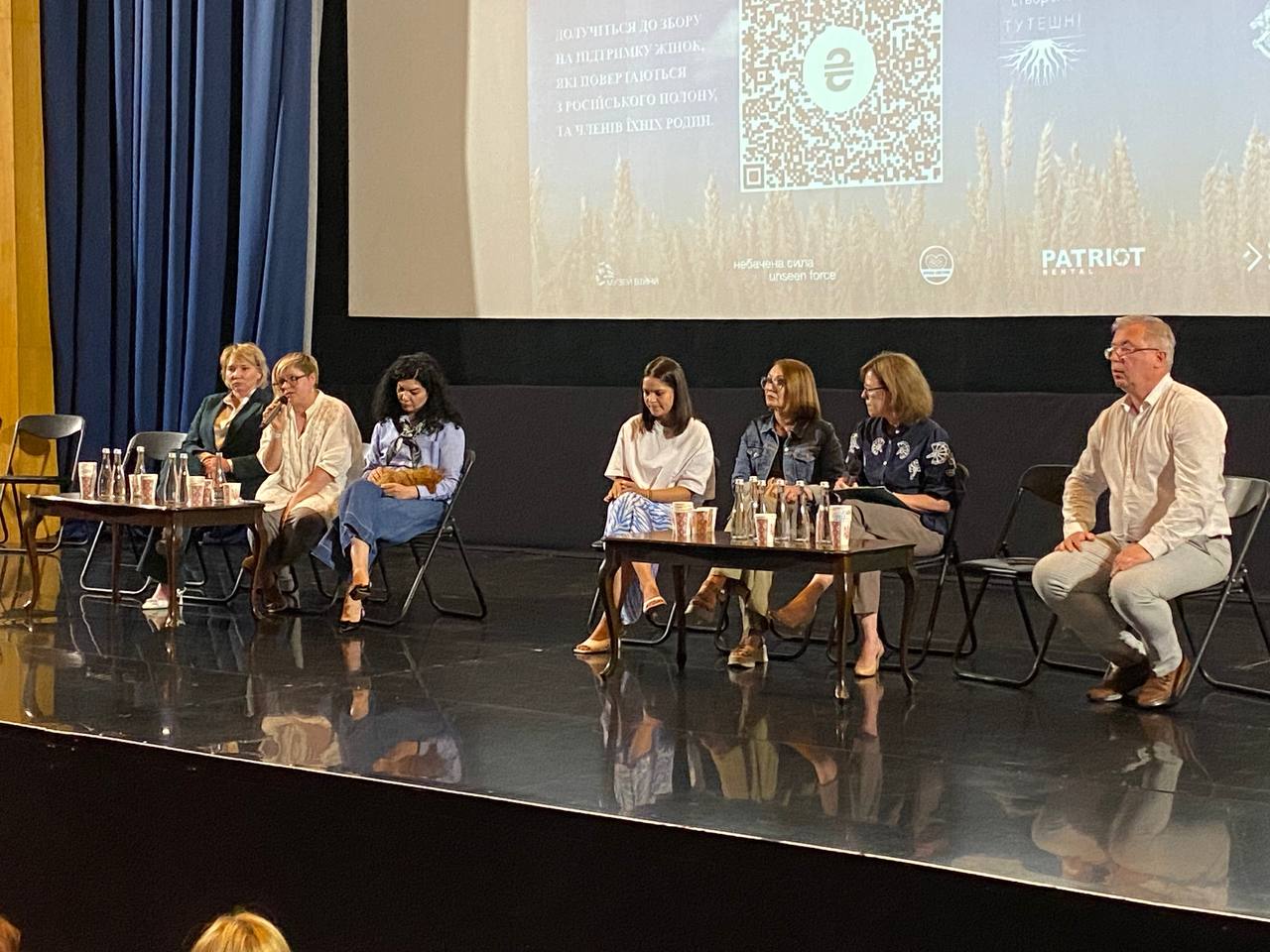
“We have actually been working on this film for a year. I remember how, a little over a year ago, we thought it would be important to highlight the topic of people under occupation. Because the gap between people who live in the controlled territory and those who are under occupation is growing. And we really wanted to create something touching that would make people think: it’s not just about the territories – it’s about the people who live there. And they are our people, Ukrainians, who are trapped in these conditions,” said Anna Sliusarenko, Producer and Screenwriter of the film, Head of the Board of the NGO Locals.
After the screening of the film, which tells the story of the non-violent resistance of Ukrainians in the occupied territories from 2014 to the present day, a public discussion took place. It was attended by MP Tamila Tasheva, Executive Director of the International Renaissance Foundation Oleksandr Sushko, representative of the Ombudsman’s Office Olha Altunina, former civilian hostages Leniie Umerova and Liudmyla Huseinova, the film’s creative team and Advocacy Director of the Human Rights Centre ZMINA Alena Lunova.
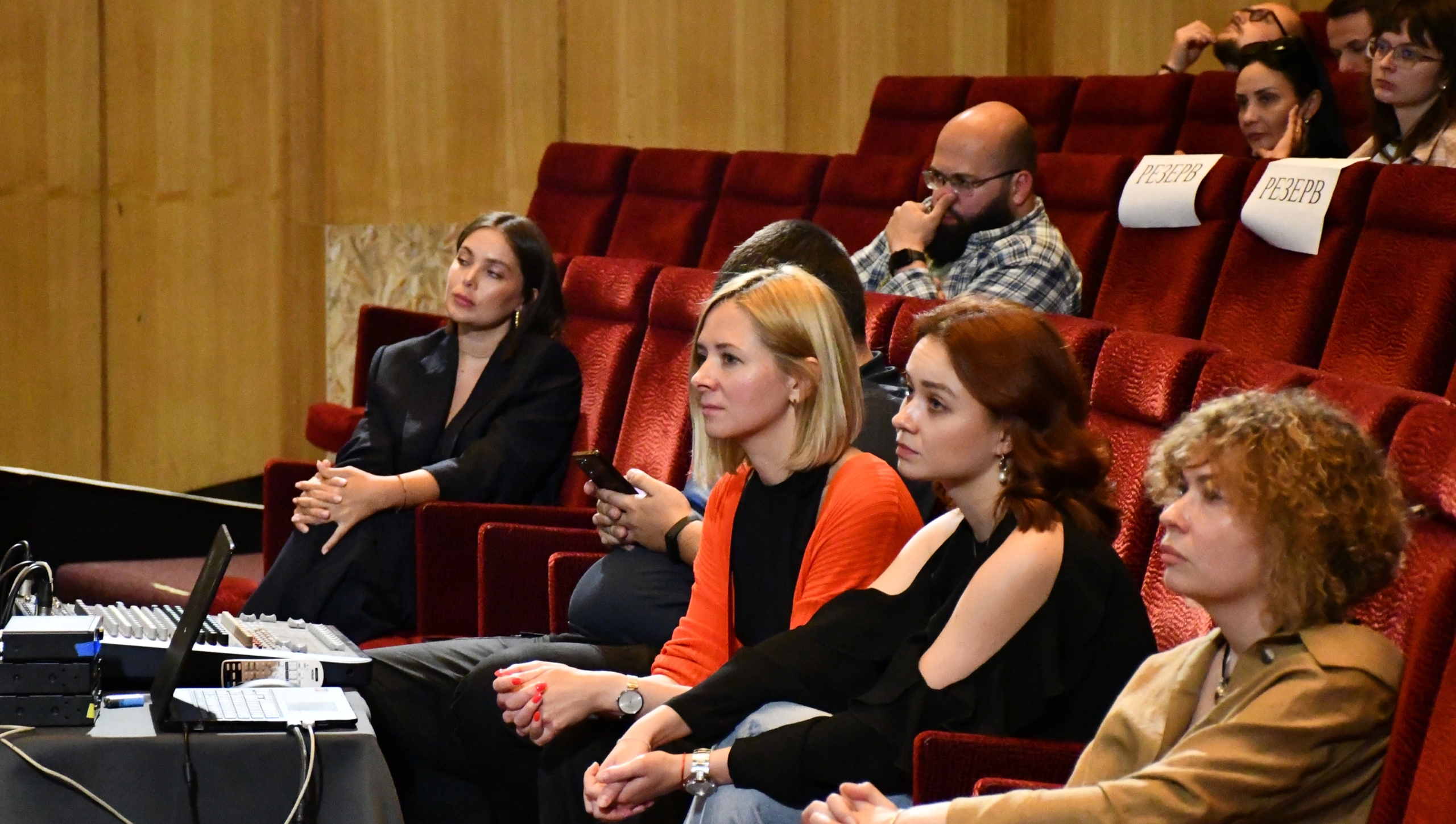
Oleksandr Sushko reminded us that the fight for the occupied territories is not just about “square kilometres”: “The stories we see in the film are not about territories, but about people. And it is very important for us that the world understands this and that Ukrainian society understands it. Even if we don’t know when and how we will restore territorial integrity, we must constantly send a message that injustice is still there“.
Tamila Tasheva also stressed that the state policy towards the occupied territories should focus not only on the territories, but first and foremost on people: “Our state policy towards the occupied territories should be centred on people. And this film speaks very clearly about this. We must reclaim not only the territories – we must bring our people back. Let me remind you of the figures: 233 people are currently being unlawfully held by Russia in detention facilities in connection with so-called Crimean cases. The film mentioned the figure of more than 16,000 such unlawfully detained civilians. Unfortunately, we understand that the real numbers are much higher. More than 3.2 million people are living under occupation today, and all of them are actually hostages of the Russian occupation regime. It is very important to communicate with these people, to send them a clear message that they are not forgotten. Because these are really very brave people who resist every day, even while staying on their land under occupation“.
Tasheva urged to write letters to political prisoners, as it gives people the strength to hold on, and not to forget that the occupation is a daily fight for millions of Ukrainians.
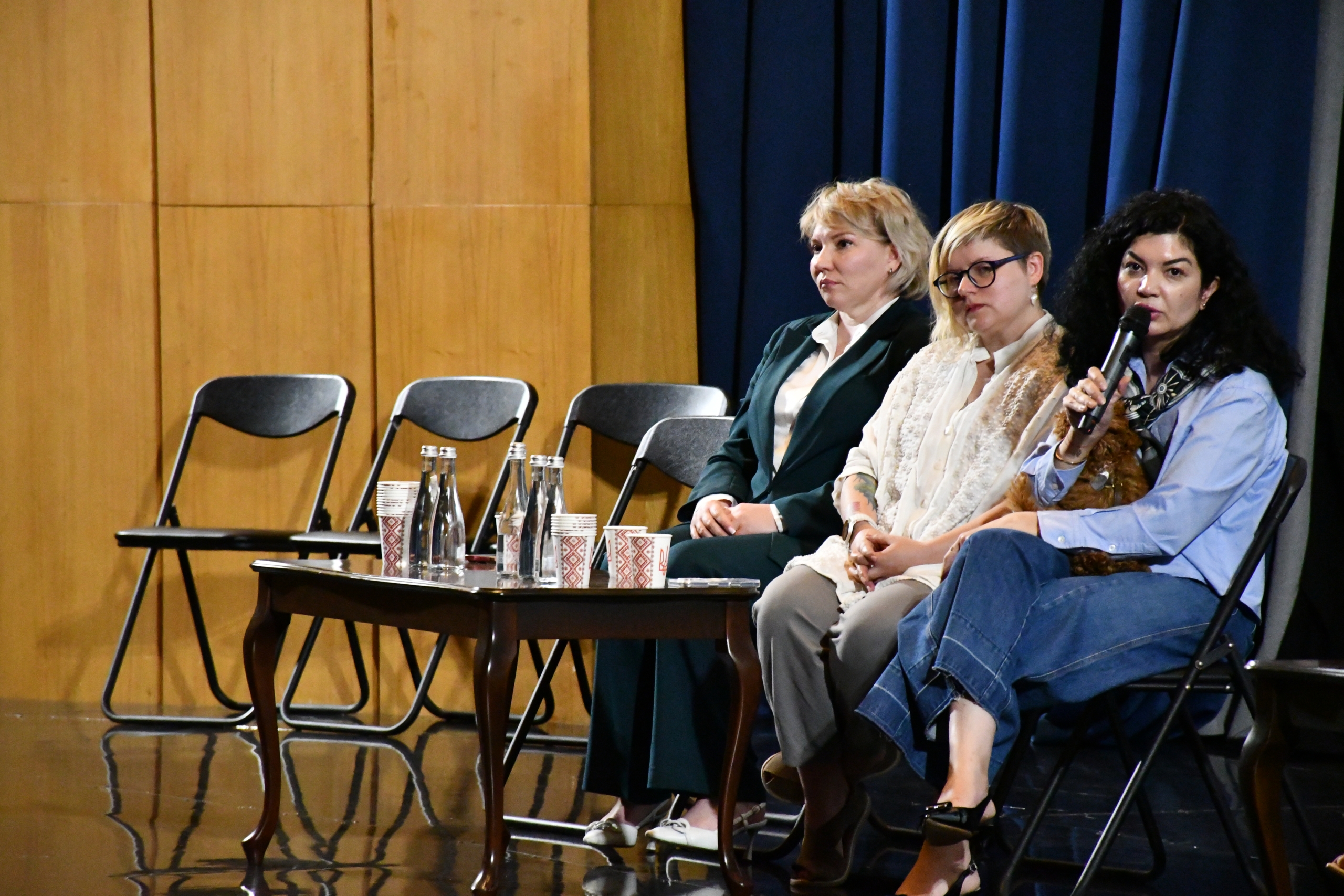
During the discussion, Alena Lunova stressed that it is important that stories about the occupation are told in the media, not only for an external audience, but also for those who continue to live under occupation.
“It is very important for people under occupation to feel that they have not been forgotten, that their lives are not defined solely by the issue of collaborationism. They need to know that Ukraine sees and recognises their daily choice to remain Ukrainian in extremely difficult conditions. This is about support, about the connection that we must not lose,” the human rights defender said.
She also drew attention to the need for state support for those who decide to leave the occupied territories, as well as the need to update legislation on prosecution for collaborative activities: “People need to be sure that in case of evacuation they will not be left alone with problems. At the same time, we must clearly distinguish between those who were surviving the occupation and those who were actually collaborating with the occupiers to the detriment of Ukraine’s interests. Unfortunately, today this distinction is not always fair, and it needs to be amended“.
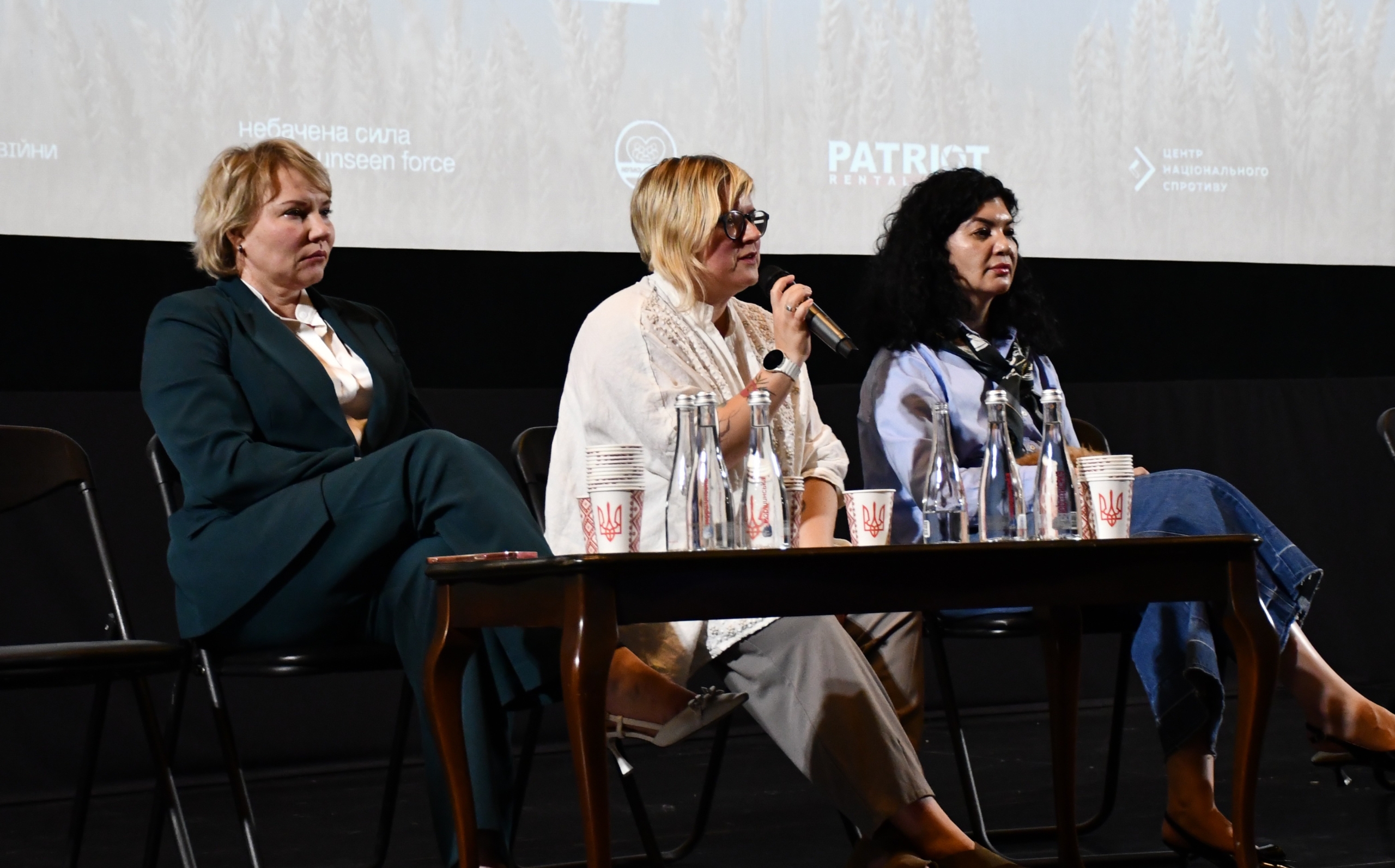
Olha Altunina, a representative of the Ombudsman’s Office, stressed the importance of talking about resistance not only in the political or human rights context, but also within family and educational contexts: “The stories of the film’s heroes and heroines should serve as an example – not to be repeated, but to inspire. It should be parents who tell their children about it, and teachers who explain it in schools. Family and education should become transmitters of the meanings of resistance“.
The price of this fight was shared from personal experience by the film’s heroines – Crimean Tatar activist Leniie Umerova and human rights defender Liudmyla Huseinova.
The event also featured an exhibition of portraits of civilian women imprisoned for their pro-Ukrainian stance. It served as a visual complement to the film’s theme – the cost of resistance and the invisible front.
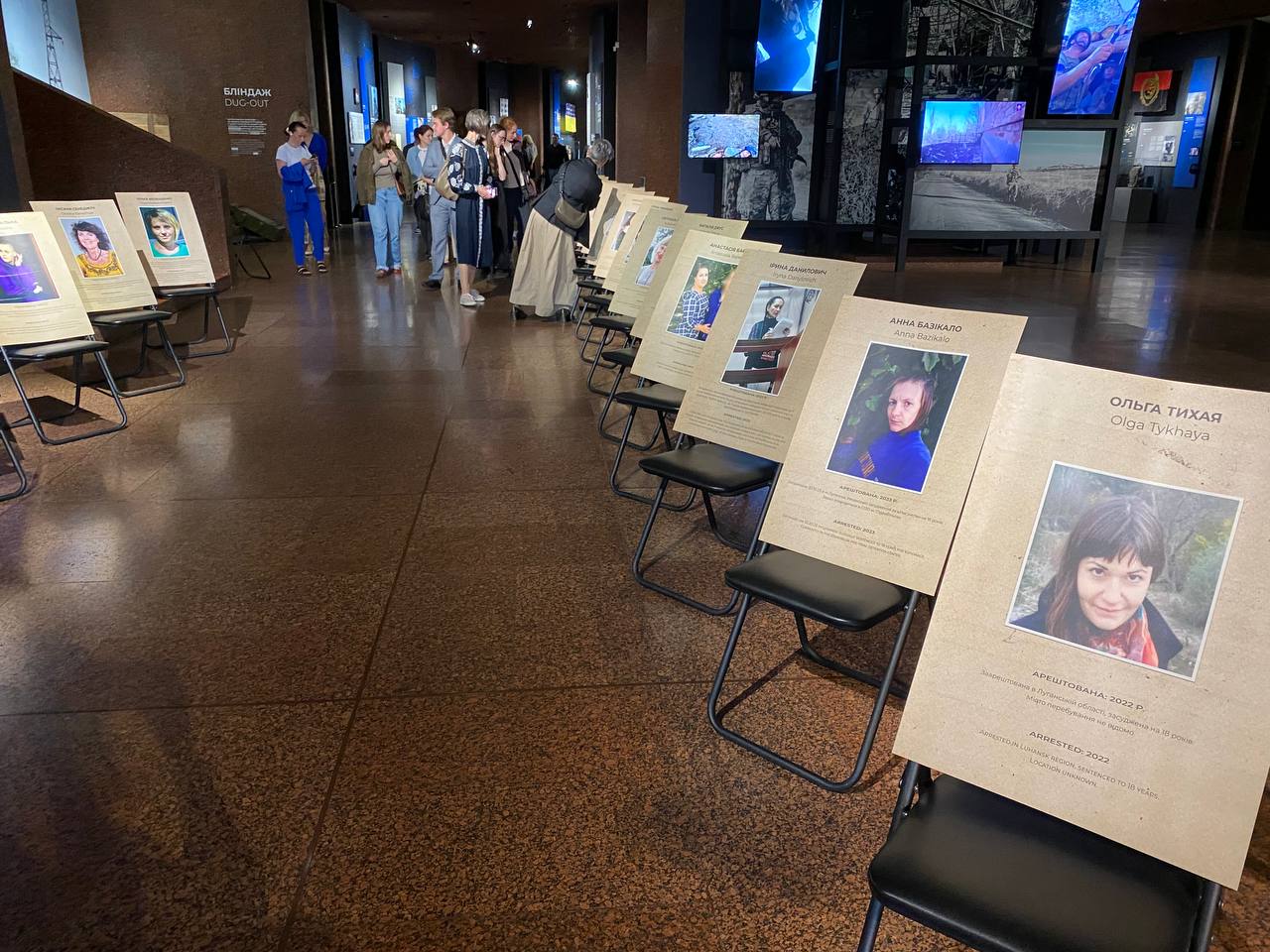
If you have found a spelling error, please, notify us by selecting that text and pressing Ctrl+Enter.




